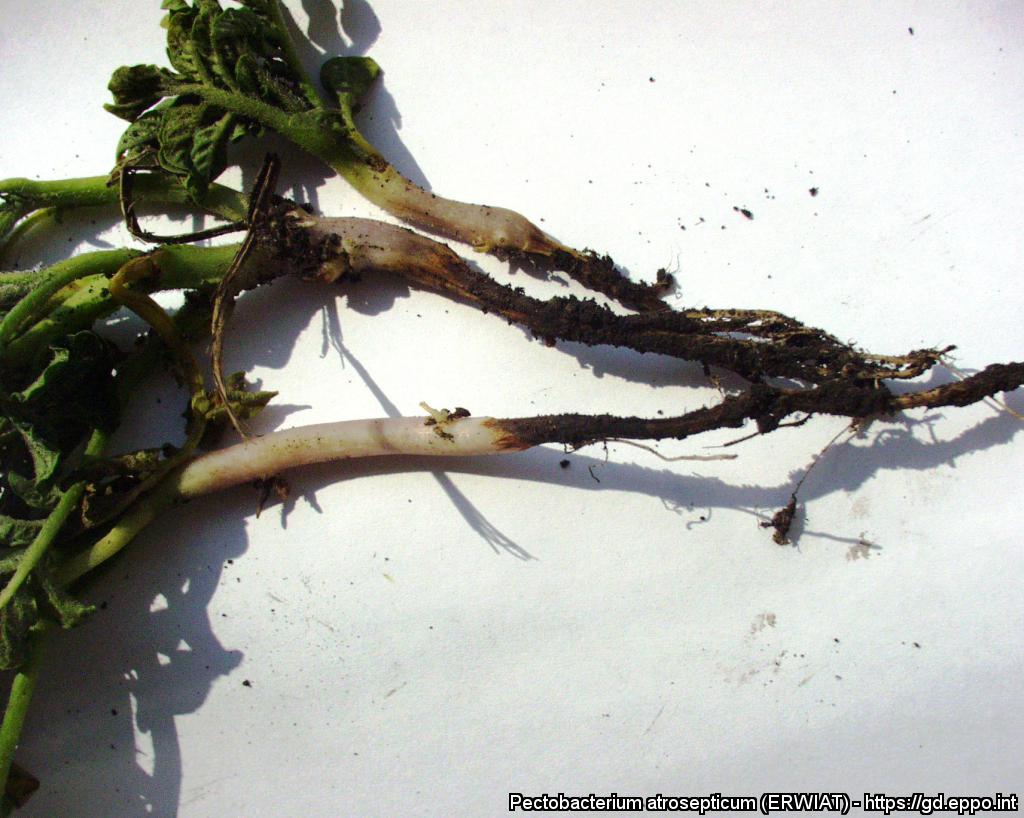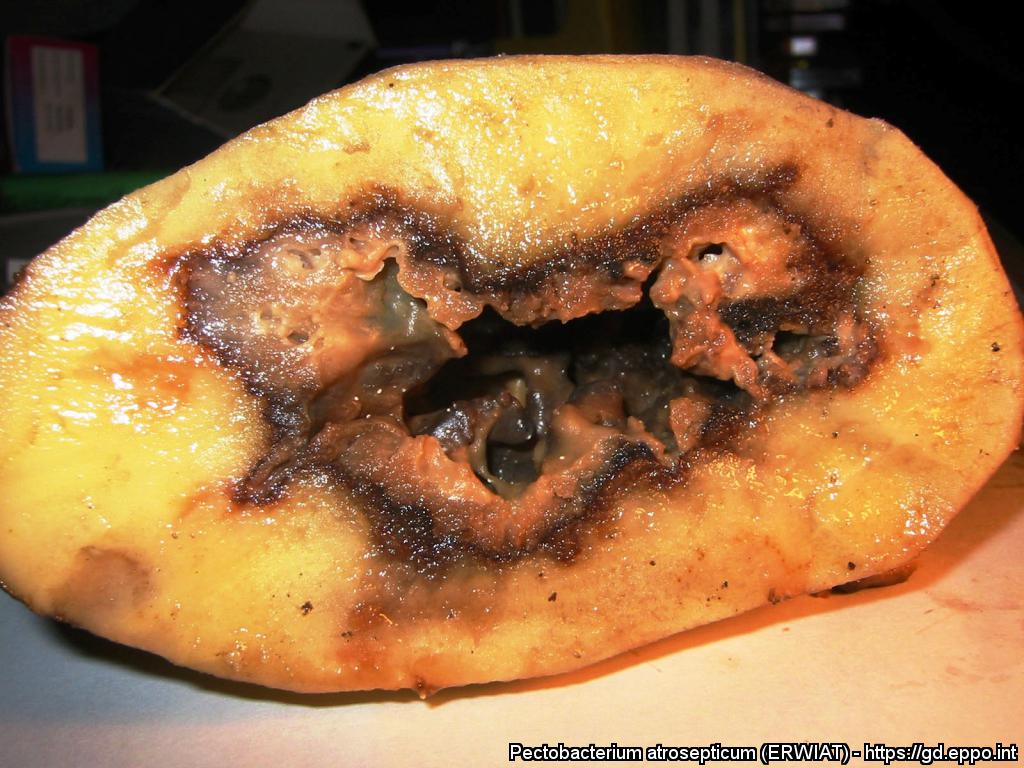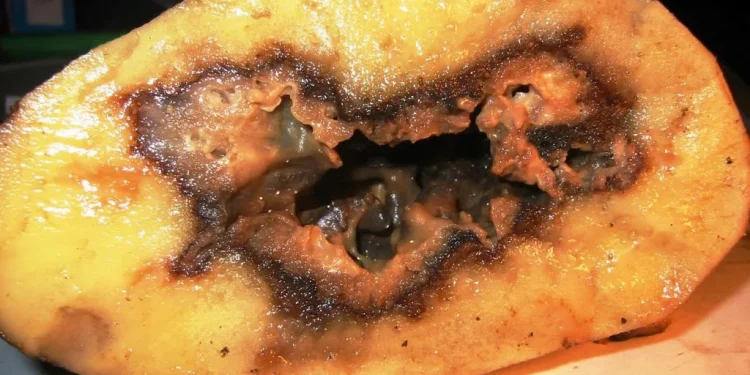There are some seed-borne diseases that are a concern for many potato growers worldwide, in particular in the European countries.
In a recent decade, the most devastating potato disease is recognised potato blackleg, caused by the bacterial complexes, Pectobacterium spp. and Dickeya spp. These potato pathogens have a wide range of host plants, including many vegetable crops and a potato crop. The complexity of taxonomic classification and of difficulties for species detection in plant health laboratories during routine testing of seed potatoes cause the necessity for the phytosanitary regulation as regulated non-quarantine pests (RNQPs) for the genera Pectobacterium and Dickeya in the EU. In the Eurasian Economic Union (EAEU) countries, these bacterial potato pathogens are not designated RNQPs and their opportunities for phytosanitary control are limited, but in the Russian Federation, there are a range of diagnostic laboratories, providing the service for the detection and identification of these seed-borne crop pathogens. It is reported that there is a significant advance in the laboratory bacterial testing for seed potatoes due to the adaptation and approval of EPPO diagnostic protocol PM7/155 (1). This encompasses the description of the procedure for the detection and identification through the use of different diagnostic methods. The main challenge for implementation of this document is the necessity to have the laboratory capacity with the laboratory equipment allowing the laboratory staff to perform the molecular tests (PCRs, DNA barcoding, etc).
Photos from the EPPO Global Database (https://gd.eppo.int/taxon/ERWIAT/photos) by © Maria A. KUZNETSOVA (All-Russian Phytopathology Research Institute)
The main biological trait is the property of forming bacterial biofilms on different types of surfaces in potato stores, on machinery thereby having to disinfect these surfaces by approved disinfectants.
The causative agents of blackleg disease are widespread in the regions of the Russian Federation. The main reasons for such a situation with seed-borne plant pathogens in potato-growing areas are a shortage of seed potatoes free from plant pathogens and the absence of the volunteer potato plant management, increasing disease risk in these areas.
References:
· Yerokhova MD, Kuznetsova MA (2022) [Aspects of integrated disease management for potato under current conditions of sustainable intensification of agriculture of Europe]. Biosphera, 14(3), pp. 163–167. DOI: 10.24855/biosfera.v14i3.691
· Yerokhova MD, Kuznetsova MA (2021) [System of voluntary certification of seed potatoes in the United Kingdom]. Zaschita I Karantin Rastenii, № 5, pp. 46-48. DOI: 10.47528/1026-8634_2021_5_46









